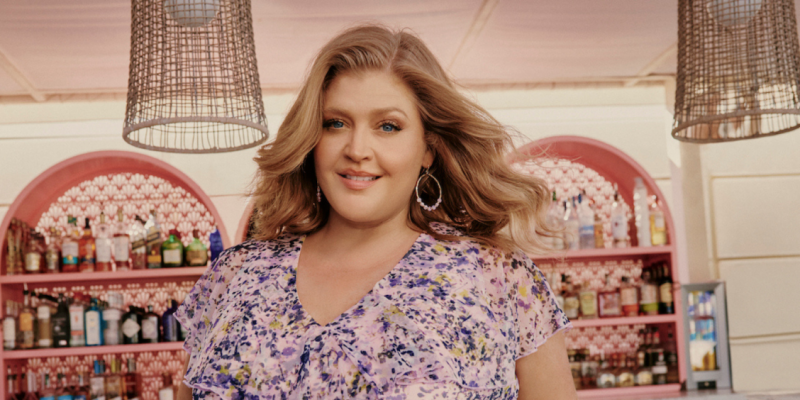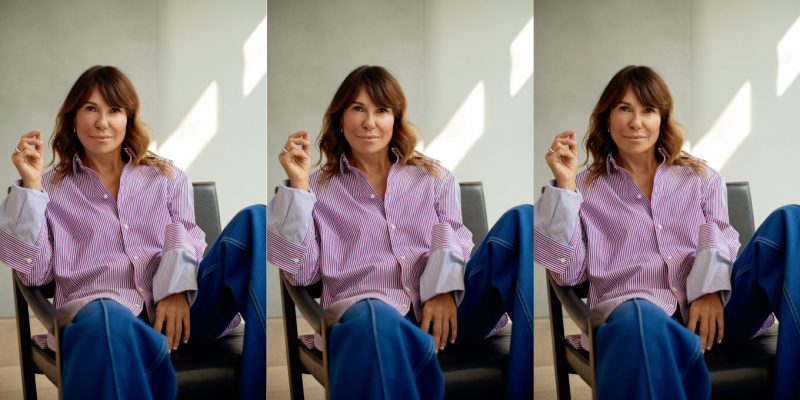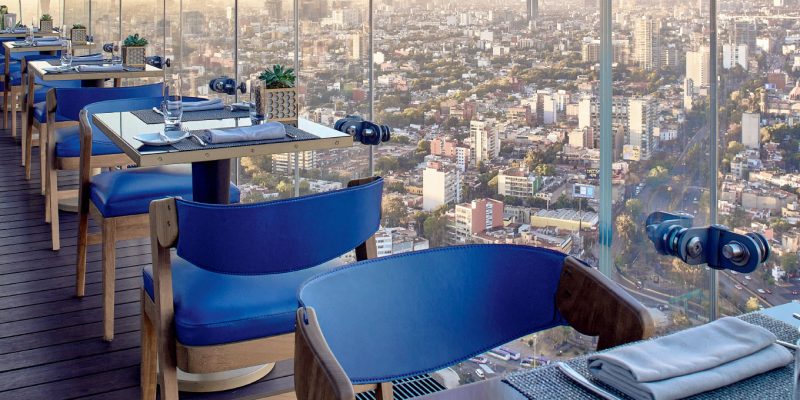Society
Yes, I’m "Still" Social Distancing
I resent having to explain why this is necessary.
by : Chloe Berge- Jul 28th, 2020

Getty
“Can I get a kiss?” said my friend’s husband in his friendly British lilt, arms outstretched on their sun-dappled backyard patio. Politely, I declined, which was met with an incredulous look, his head cocked to one side. “He’s just giving you a hard time, he knows you’re distancing,” chimed in my friend. The thing is, he wasn’t laughing. It was clearly a dig at me – the square – who had insisted we meet outside for Saturday night drinks and wouldn’t hug anyone. Despite clear guidelines about what constitutes low-, moderate- and high-risk activities when it comes to preventing the spread of coronavirus, following COVID-19 distancing measures has somehow become a polarizing issue. And in some circles, I find myself on the unpopular side of politics.
In British Columbia, our coronavirus numbers are low and so is the risk. But that’s only because up until now, we’ve been careful. One only needs to look at our neighbours to the south to see how quickly a resurgence can swell when restrictions are loosened too quickly. And last I checked, the provincial health recommendation was still to wash hands frequently, wear a mask in public, and keep two metres apart when interacting with anyone outside our bubble (which should be limited to as few people as possible who have also been practicing distancing). On July 27, Dr. Eileen de Villa, the medical officer of health for the city of Toronto, told residents that approximately 25% of new cases were due to community transmission. “I have heard many people speak of COVID fatigue and I hear that some believe that the pandemic is over,” she said. “I am concerned as I continue to hear that some younger people believe that they are not at risk of catching COVID-19, and they will not experience severe illness if they get infected. The reality is that there are people in their 20s and 30s who have become very unwell with COVID-19 infections.” Yet, I’m being made to feel like the unreasonable one. I’m even starting to resent having to explain to friends that yes, I’m still social distancing. Shouldn’t that be the de facto mode of socializing right now?
I understand the deep desire for normalcy. I miss hugs, concerts, the buzz of airports and being able to shop without feeling like a Hunger Games contestant. I haven’t seen my brother, who lives in Toronto, since Christmas, and my fiancé and I postponed our summer wedding. At the beginning of the outbreak, it was all sourdough bread, budding gardeners, and memes about introverts for whom life hadn’t changed much. Some of us revelled, thrived even, in the gift of time at home we’d been granted. The sentiment has shifted. The evening salute to healthcare workers has dwindled to a few lonely bells, and so, it seems, has general concern for others. People are tired. Even for me, someone who is usually looking for an exit strategy at parties and work functions, distancing and staying home has lost any novelty it may have once had. But, unfortunately, coronavirus isn’t over just because we’re over it.
“I’m even starting to resent having to explain to friends that yes, I’m still social distancing. Shouldn’t that be the de facto mode of socializing right now?”
For the COVID-19 deniers who have hopped on the Bill Gates-versus-the-world conspiracy train, this reckless behaviour actually makes sense. If the virus isn’t as bad as health experts say it is, if it’s no more than a grand deep state plot to benefit the wealthy elite, why bother to distance? The disturbing fact is that most people I know – smart, rational people I call friends – who have chosen to no longer distance do believe the virus to be a real threat. Even though people are still dying around the world, it seems they’ve chosen to abide by health recommendations only when it’s convenient.
This attitude has even infiltrated the outdoors, where there should be enough space for everyone. Due to park closures, some trails are overcrowded and people don’t want to accommodate others. On a recent Vancouver hike, my partner and I pulled off on a shoulder to give hikers coming towards us room, only to have two people behind us brush right by. “We’re just trying to give people some space, no one is distancing,” I explained, turning to the couple. “Not today!” the woman retorted triumphantly. Not today? Then what is the point of doing it ever?
Distancing is not something we can practice only when the mood suits, and it also doesn’t have to be an all-or-nothing endeavour. I’m hardly a zealot. I visit with family and friends outdoors, eat out, I’ve gone to the hairdresser, and I’m planning some regional travel this summer. But I’m doing it safely and with respect for other people. We can still live while keeping our numbers low and ensuring we don’t suffer a devastating second wave. Still, certain friends have stopped inviting me out because of my choice to distance, presumably because I’ll put a damper on their cozy, possibly virus-incubating celebrations. This seems unnecessarily discriminatory when we could easily enjoy each other’s company if we all chose to stay two metres apart as health officials recommend.
“Not only is the failure to continue to distance selfish, it puts the onus on those of us adhering to the rules to enforce them. And it’s exhausting.”
What should be a simple solution has turned into a highly charged, politicized one. The irony is that by declaring no one has the right to enforce distancing or wearing a mask, anti-maskers are infringing on the autonomy of others. If there’s a resurgence this fall in Canada, more people will lose loved ones. Healthcare workers will be overtaxed and at risk once again. On a personal note, I’d like to see my brother within the next year, have the wedding I want next summer, and resume work which requires me to travel internationally. None of that will be possible if there are subsequent waves and that decision will be made for me. The inability to see that we’re only prolonging the discomfort by refusing to distance is infuriating. The longer we can abide by health regulations, the sooner this will be over for everyone, for good.
Not only is the failure to continue to distance selfish – a survey by Statistics Canada shows that people who are not concerned about the health of others are less likely to follow social distancing rules – it puts the onus on those of us adhering to the rules to enforce them. And it’s exhausting. Playing the inevitable awkward conversations I’ll have with cavalier friends out in my mind like a screenwriter, thinking about the tricky social situations I might find myself in – and how I will navigate them in a diplomatic manner when what I’d really like to do is scream in frustration – the worry I feel for my 70-year-old father; these things keep me up at night.
I hope we can all look within ourselves and unearth the compassion we showed when the pandemic first began. At the very least, for those intent on not following regulations, don’t have the audacity to make those of us who are taking precautions feel bad about it. Beating this virus is an endurance race and I’m tired too.
READ MORE:
Why We Need to Laugh Now More Than Ever
Newsletter
Join our mailing list for the latest and biggest in fashion trends, beauty, culture and celebrity.
Read Next

Beauty
Dyson Just Launched Its Most Intelligent Hair Dryer Yet
Get ready to upgrade your blowout game.
by : Lauren Knowles- Apr 25th, 2024

Fashion
Meredith Shaw Created a Plus-Size Summer Dress Collection That "Feels Like Candy"
The morning show host joined forces with PENN. to create a curated collection for sizes 14-32.
by : Allie Turner- Apr 25th, 2024

Beauty
Summer Prep: How to Feel Confident in Your Swimsuit
New Size-Inclusive Swimwear: Gillette Venus partners with The Saltwater Collective to Launch a Collection for Any Body
by : ELLE Canada- Apr 24th, 2024




